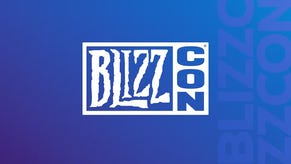PSN: Sony "could well have been negligent," faces big fine
Following confirmation that PSN accounts have been hacked, a legal expert has warned that Sony could face heavy fines for breaching the Data Protection Act.
Following Sony's bombshell admission last night that PSN user data has been hacked, a British lawyer has warned that the firm could face heavy penalties if it falls foul of UK data standards.
"Under the Data Protection Act, there are principles that regulate how companies that collect personal data should manage and use that data, and one of them is that they have to take appropriate technological safeguards to protect that data," Simon Halberstam, a partner at London law firm Kingsley Napley LLP told VG247 today.
"If they fell below what’s regarded as best practice in terms of the technological safeguards that they took, they would be in breach of the Data Protection Act.
"In that case, they are potentially liable, and they could be fined by the Information Commision accordingly. I think the maximum fine is £500,000."
The UK's Information Commissioner’s Office confirmed today it is taking the PSN breach "seriously" and is due to talk to Sony on the matter.
Sony could potentially also be sued by both consumers and banks covering losses resulting from any credit card information leak.
"A lot of people do get sued because they’ve been negligent," Halberstam said. "Negligence is a big source of legal action, and it sounds like they could well have been negligent. If you could prove that they fell below the standard of care required under the data protection regime, that would give a good launch pad for people to sue them for negligence and the consequences of negligence."
Halberstam added, however, that he felt it "unlikely" Sony will be sued in the wake of the leak, and noted that he couldn't think of a single instance where a hacked company had been taken to court over loss of data.
"I think the major damage to Sony is reputational," he said.
"Are people going to trust them with their details any more? That’s a much more serious issue for Sony, I think, than the potential for being sued."
Should I call my bank?
Sony last night confirmed the worst case scenario regarding the ongoing PSN outage, saying that the identity, date of birth and credit card information linked to your account has been compromised.
“I think the major damage to Sony is reputational."
Sony suggests PSN customers should protect themselves "against possible identity theft or other financial loss," and encourages customers to "remain vigilant, to review your account statements and to monitor your credit reports."
Major financial institutions inside and outside the US are yet to be advised of the security risk, with Giantbomb reporting neither Bank of America nor Chase had been given any official update.
A customer service representative for an international bank said he was nevertheless aware of the problem.
"We've had a lot of calls about this," he commented, stating that banking operatives had turned to the Internet for information. "It looks like a pretty serious hack."
The representative echoed Sony's advice and strongly recommended PSN account holders replace their credit cards immediately, to change expiry dates and CCV numbers, and to continue monitoring the account even so.
Contact your bank or credit card issuer's Card Holders Services department for more information and to initiate a replacement card.
UK consumer rights organisation Which? told Eurogamer that unless account holders had been "grossly negligent" or had participated in scamming, they can only be held responsible for up to £50 of fraudulent charges, and even this may be waived.
The group also advised contacting Experian, Callcredit and Equifax to ensure no applications for credit have been made in your name, echoing advise given to US account holders.
"In the US, none of Sony's customers will have to pay for any fraudulent use of credit information," industry analyst and lawyer Michael pachter said.
"So Sony will work with the financial institutions to cover any losses. Sony will of course be liable to reimburse PlayStation Plus customers for their downtime. I'm sure that they will provide something (free game downloads or something similar) to recompense customers for the inconvenience caused, which is significant."
US Senator Richard Blumenthal has taken Sony to task over how long it took the platform holder to inform customers of the security breach. Sony responded by stating it hadn't discovered the data theft until this week.
Custom firmware is said to have allowed hackers to utilise an exploit to access the developer-only PlayStation Network
In the door and over the gate
According to Valve, the release of Portal 2 - and its accompanying Steamworks platform for the PlayStation 3 - is an unfortunate coincidence. The toolsuite is currently not considered a serious culprit as the hackers' points of entry.
Instead, rumours circulating the Internet point to the use of the custom firmware known as Rebug - made possible through the release of the console's root key by GeoHot.
The custom firmware is said to have allowed hackers to utilise an exploit to access the developer-only PlayStation Network.
While the original hackers' intentions - an attack against Sony, personal curiosity - may never be known, plenty of savvy users are said to have jumped on the bandwagon, adding games and credit to their accounts.
If the latter is true, greedy exploiters can probably expect more than a ban hammer when Sony finally bring the service back online.
Who did it, and why?
Despite a recent campaign of DDOS attacks against the service, Anonymous has denied responsibility for the latest hack - but the anarchic hacktivist organisation is notoriously splintered into cells of varying abilities and goals.
"Hackers love the 'fox hunt', but this is different. This an attack on Sony," a network administration expert told VG247.
"This sounds like a crew, not a bunch of script kiddies."
Our expert said if the hack is an act against Sony, then the perpetrators may not use credit card details sourced from the PSN.
"That would be counter productive," he said. "I see this more as a 'we got in, copy everything, sort it out later.' And in this case, [the hack] yielded credit card numbers.
"Also, this could be a bit of a smoke screen. Credit card number theft is 'popular' with media and all, but what else has been grabbed?"
Something more vital to the future of the console's security, perhaps.
"User credit card numbers are not the target Anonymous is looking for," our expert opined.
"For them, this step is far more about discrediting Sony rather than personal plundering."
There's a giant FAQ here, and you can read the full statement from SCEA's Patrick Seybold below:
Thank you for your patience while we work to resolve the current outage of PlayStation Network & Qriocity services. We are currently working to send a similar message to the one below via email to all of our registered account holders regarding a compromise of personal information as a result of an illegal intrusion on our systems. These malicious actions have also had an impact on your ability to enjoy the services provided by PlayStation Network and Qriocity including online gaming and online access to music, movies, sports and TV shows. We have a clear path to have PlayStation Network and Qriocity systems back online, and expect to restore some services within a week.
We’re working day and night to ensure it is done as quickly as possible. We appreciate your patience and feedback.
Valued PlayStation Network/Qriocity Customer:
We have discovered that between April 17 and April 19, 2011, certain PlayStation Network and Qriocity service user account information was compromised in connection with an illegal and unauthorized intrusion into our network. In response to this intrusion, we have:
1. Temporarily turned off PlayStation Network and Qriocity services;
2. Engaged an outside, recognized security firm to conduct a full and complete investigation into what happened; and
3. Quickly taken steps to enhance security and strengthen our network infrastructure by re-building our system to provide you with greater protection of your personal information.
We greatly appreciate your patience, understanding and goodwill as we do whatever it takes to resolve these issues as quickly and efficiently as practicable.
Although we are still investigating the details of this incident, we believe that an unauthorized person has obtained the following information that you provided: name, address (city, state, zip), country, email address, birthdate, PlayStation Network/Qriocity password and login, and handle/PSN online ID. It is also possible that your profile data, including purchase history and billing address (city, state, zip), and your PlayStation Network/Qriocity password security answers may have been obtained. If you have authorized a sub-account for your dependent, the same data with respect to your dependent may have been obtained. While there is no evidence at this time that credit card data was taken, we cannot rule out the possibility. If you have provided your credit card data through PlayStation Network or Qriocity, out of an abundance of caution we are advising you that your credit card number (excluding security code) and expiration date may have been obtained.
For your security, we encourage you to be especially aware of email, telephone, and postal mail scams that ask for personal or sensitive information. Sony will not contact you in any way, including by email, asking for your credit card number, social security number or other personally identifiable information. If you are asked for this information, you can be confident Sony is not the entity asking. When the PlayStation Network and Qriocity services are fully restored, we strongly recommend that you log on and change your password. Additionally, if you use your PlayStation Network or Qriocity user name or password for other unrelated services or accounts, we strongly recommend that you change them, as well.
To protect against possible identity theft or other financial loss, we encourage you to remain vigilant, to review your account statements and to monitor your credit reports. We are providing the following information for those who wish to consider it:
U.S. residents are entitled under U.S. law to one free credit report annually from each of the three major credit bureaus. To order your free credit report, visit www.annualcreditreport.com or call toll-free (877) 322-8228.
We have also provided names and contact information for the three major U.S. credit bureaus below. At no charge, U.S. residents can have these credit bureaus place a “fraud alert” on your file that alerts creditors to take additional steps to verify your identity prior to granting credit in your name. This service can make it more difficult for someone to get credit in your name. Note, however, that because it tells creditors to follow certain procedures to protect you, it also may delay your ability to obtain credit while the agency verifies your identity. As soon as one credit bureau confirms your fraud alert, the others are notified to place fraud alerts on your file. Should you wish to place a fraud alert, or should you have any questions regarding your credit report, please contact any one of the agencies listed below.
Experian: 888-397-3742; www.experian.com; P.O. Box 9532, Allen, TX 75013
Equifax: 800-525-6285; www.equifax.com; P.O. Box 740241, Atlanta, GA 30374-0241
TransUnion: 800-680-7289; www.transunion.com; Fraud Victim Assistance Division, P.O. Box 6790, Fullerton, CA 92834-6790
You may wish to visit the web site of the U.S. Federal Trade Commission at www.consumer.gov/idtheft or reach the FTC at 1-877-382-4357 or 600 Pennsylvania Avenue, NW, Washington, DC 20580 for further information about how to protect yourself from identity theft. Your state Attorney General may also have advice on preventing identity theft, and you should report instances of known or suspected identity theft to law enforcement, your State Attorney General, and the FTC. For North Carolina residents, the Attorney General can be contacted at 9001 Mail Service Center, Raleigh, NC 27699-9001; telephone (877) 566-7226; or www.ncdoj.gov. For Maryland residents, the Attorney General can be contacted at 200 St. Paul Place, 16th Floor, Baltimore, MD 21202; telephone: (888) 743-0023; or www.oag.state.md.us.
We thank you for your patience as we complete our investigation of this incident, and we regret any inconvenience. Our teams are working around the clock on this, and services will be restored as soon as possible. Sony takes information protection very seriously and will continue to work to ensure that additional measures are taken to protect personally identifiable information. Providing quality and secure entertainment services to our customers is our utmost priority. Please contact us at 1-800-345-7669 should you have any additional questions.
Sincerely,
Sony Computer Entertainment and Sony Network Entertainment
PSN was taken offline last Wednesday after an "external intrusion" was detected.









